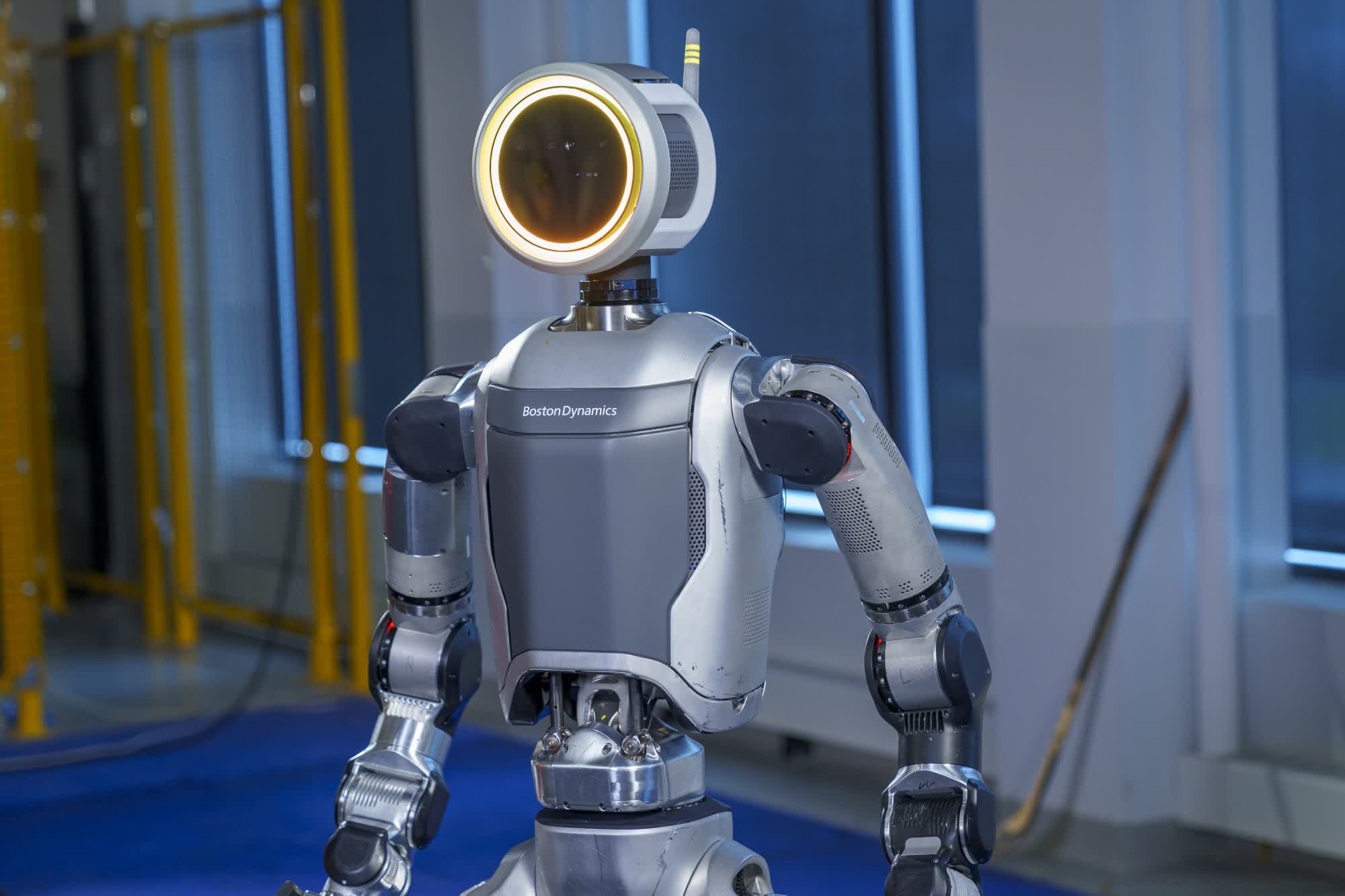Forward-looking: Boston Dynamics' bipedal humanoid robot, Atlas, has been awing onlookers (and creeping out others) for over a decade. Just a day ago, the company retired the groundbreaking bot, paving the way for an all-new model with even more impressive capabilities.
Whereas the original used hydraulics for movement, Boston Dynamics' latest creation is fully electric. The company says Atlas is now stronger and more agile than previous iterations and has far more range of motion as well. With improved dexterity, Boston Dynamics is also able to experiment with new gripper variations for even more versatility in the field.
While Atlas resembles the human form factor, that's about where the similarities end. As you can see in the teaser, the bot isn't constrained by a human's range of motion and thus is able to move in the most efficient way possible.
The new platform is likely to be more robust, too, especially without the vulnerability of hydraulic lines rupturing.
The company has announced it will be partnering with a small group of innovators on the Atlas project over the coming years, starting with its majority owner, Hyundai. If you recall, the South Korean automaker acquired an 80 percent stake in Boston Dynamics in late 2020 for approximately $880 million.
The bot maker states that creating a capable robot is just one piece of the puzzle in building a successful commercial platform. The complete picture includes supporting IT infrastructure, appropriate safety standards, employee buy-in, connectivity, and updated operational processes.
Earlier this week: Farewell, Atlas: Boston Dynamics says goodbye to its iconic robot with highlights and bloopers reel – Making way for a successor?
As impressive as the new Atlas is, Boston Dynamics notes that some of the most exciting advancements they've made in recent years have been in software development. The team has added new AI and machine learning tools to its bots, including computer vision and reinforcement learning, to ensure the best opportunity to adapt to complex, real-world scenarios.
The firm's new Orbit software, meanwhile, provides a centralized hub to manage a workforce's entire fleet of bots. The tool is available now for Boston Dynamics' Spot line, but will eventually be expanded to support Atlas and Stretch, we're told.
